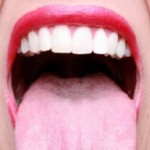 Dry mouth is also known as xerostomia. Xerostomia is not a disease but a subjective complain of oral dryness resulting from reduced saliva flow. However, dry mouth can be associated with certain medical conditions such as diabetes , sjogren syndrome and etc. Â This is why you should not ignore and get a professional consultation if you are suspecting that you are suffering from dry mouth.
Dry mouth is also known as xerostomia. Xerostomia is not a disease but a subjective complain of oral dryness resulting from reduced saliva flow. However, dry mouth can be associated with certain medical conditions such as diabetes , sjogren syndrome and etc. Â This is why you should not ignore and get a professional consultation if you are suspecting that you are suffering from dry mouth.
Xerostomic / dry mouth condition may lead to
-Â Â Â Â Â Â Â Â Â Increased dental caries.
-Â Â Â Â Â Â Â Â Â Increased oral infections such as oral thrush (candida infection)
-Â Â Â Â Â Â Â Â Â Halitosis (bad breath)
-Â Â Â Â Â Â Â Â Â Reduced tolerance to dentures.
Signs and symptoms of dry mouth
-Â Â Â Â Â Â Â Â Â Sensation of oral dryness.Â
-Â Â Â Â Â Â Â Â Â Discomfort during eating and speech
-Â Â Â Â Â Â Â Â Â Pain while consuming spicy or coarse food.
Saliva is important:
-Â Â Â Â Â Â Â Â Â Saliva contains enzyme which helps in digestion of food.
-Â Â Â Â Â Â Â Â Â Saliva lubricates the mouth and allows food to slide through the esophagus without damaging the mucosa
-Â Â Â Â Â Â Â Â Â Saliva helps in remineralisation and neutralize acids produced by bacteria.
Below are some common causes of dry mouth/xerostomiaÂ
-         Medication/drugs  ( such as antihypertensive, psychogenic drugs) are by far the commonest cause of dry mouth. Consult your physician if you suspect that your medications are causing you dry mouth.
-Â Â Â Â Â Â Â Â Â Dehydration (decrease fluid intake) is a common cause of dry mouth among the elderly.Â
-Â Â Â Â Â Â Â Â Â Sjogren syndrome. Â Sjogren syndrome is an autoimmune disorder which affects the exocrine glands. Dry eyes and dry mouth are the most common symptoms of sjogren syndrome.
-Â Â Â Â Â Â Â Â Â Radiation therapy Xerostomia is a side effect of radiation therapy. Radiation therapy to head and neck can damage salivary glands and reduce salivary flow.
-Â Â Â Â Â Â Â Â Â Anxiety, depression and other psychological factors can be one of the factors that cause dry mouth.
-Â Â Â Â Â Â Â Â Â Smoking or chewing tobacco products can affect and reduce saliva production.
-         Developmental anomaly. Absence of salivary gland which is also known as salivary gland aplasia is also a cause of xerostomic condition.
  How to overcome dry mouth/ xerostomia
1)Â Â Â Â Â Get a professional consultation and find out the cause of your dry mouth condition.
2)Â Â Â Â Â Increase fluid intake or take frequent sips of water throughout the day to keep your oral cavity hydrated.
3)Â Â Â Â Â Stimulate salivary flow by chewing sugar free gum or suck on lemon drops.
4)Â Â Â Â Â Protect dry lips by using lip moisturizer.
5)Â Â Â Â Â Use a room humidifier to moisten air and reduce dry mouth in the early morning.
6)Â Â Â Â Â Whenever possible avoid drugs which cause xerostomia or if your medications are giving you dry mouth, inform your practitioner so that he can change his drug prescriptions.
7)Â Â Â Â Â Use specially designed dental products such as Biotene to relieve your dry mouth condition. Â
8)Â Â Â Â Â In severe xerostomic condition, your dental practitioner will most likely prescribe salivary stimulants (pilocarpine) and artificial saliva.
9)Â Â Â Â Â Take good care of your oral hygiene and go for regular dental check up to monitor your oral health status.
10)Â Â Avoid hard foods such as dry bread, crackers, and cookies as they will be hard to chew and swallow.
11)Â Â Avoid consumption of coffee and alchohol. They are diuretics and can leave your mouth a dry sensation.
Â